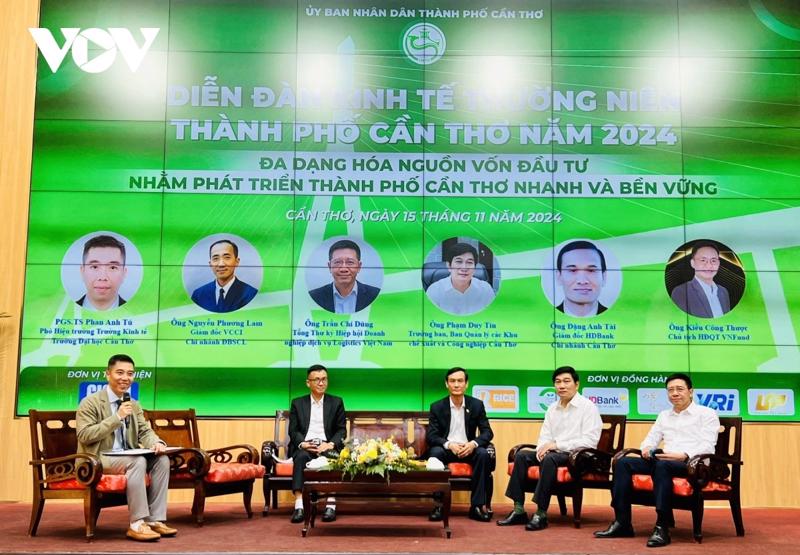At the Can Tho City Annual Economic Forum 2024, held on November 15 with the theme “Diversifying Investment Sources for Fast and Sustainable Development of Can Tho City,” experts, businesses, and management officials put forth various solutions to propel the locality's economic growth sustainably, the Voice of Vietnam reported.
Despite being the central city of the Mekong Delta region, Can Tho has struggled to meet investment expectations due to underdeveloped infrastructure, including incomplete road networks, ports, and logistics systems, which fall short of large investors' needs.
Additionally, complex administrative procedures, a lack of innovative policies, and an absence of strategies to attract extra-budgetary investments and Foreign Direct Investment (FDI) have further hindered the city’s growth.
Mr. Tran Viet Truong, Chairman of the People's Committee, highlighted the city's challenges in attracting investment, noting that while economic restructuring is on the right track, progress remains sluggish, particularly in the industrial-construction and service sectors.
According to Mr. Nguyen Khanh Tung, Director of the Can Tho City Institute of Economics and Society, logistics and transport infrastructure are major bottlenecks impeding investment in Can Tho and the Mekong Delta region. Despite the central government's investments, regional connectivity lags behind other parts of the country, not meeting development demands.
"For businesses considering investment in Can Tho city, infrastructure is the primary concern, followed by clean land and raw materials for major projects," said Mr. Tung.
He added that the city is reassessing its resolutions and special policy mechanisms, proposing new superior mechanisms and policies aimed at developing a specialized economic zone model spanning approximately 6,000 ha. This model is expected to provide a larger development space and foster innovation in finance, education and training, logistics, and trade services.
Forum delegates also recommended that the city prioritize long-term, sustainable development solutions that balance transport infrastructure with urbanization. This balance is crucial to ensuring efficient traffic flow, economic growth, and improved quality of life for residents.
They emphasized the need for local authorities to shift their mindset, better understand the needs of businesses and investors, and implement special policies for primary investors and strategic infrastructure projects.









 Google translate
Google translate